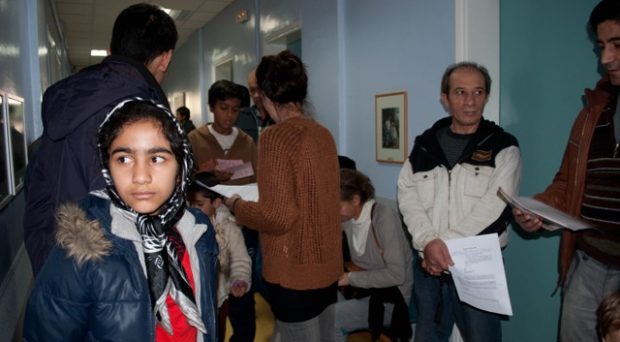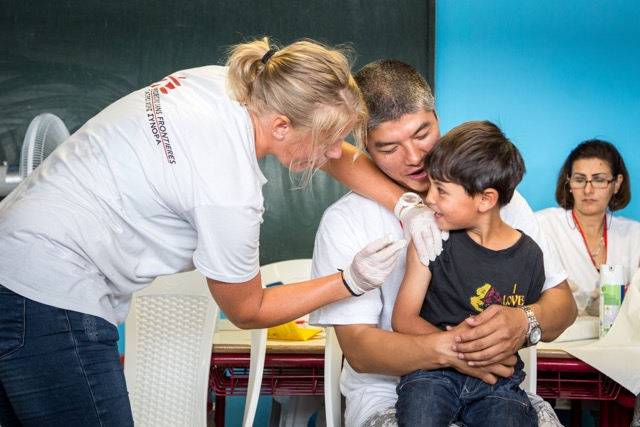
Migrant children are at risk of a variety of physical and mental health problems as a result of their limited access to quality health care, the increased prevalence of infectious diseases in their home countries and the difficult conditions they experience during the process of migration. Many of these conditions are manageable, and if undiagnosed or left untreated, could lead to significant unfavorable health outcomes.
For more than two decades, Greece has been experiencing increased mobility of various populations across its borders. However, there are limited data and information with regards to their health particularly in the case of children.
In our recently published study in BMC Pediatrics (Clinical and laboratory evaluation of new immigrant and refugee children arriving in Greece), we prospectively examined all immigrant and refugee children that attended a special outpatient clinic at a large tertiary Children’s Hospital, in Athens, Greece to obtain a health evaluation, within three months of their arrival in the country.
Lack of vaccination records and bad oral health were the most prevalent clinical issues
Immigrants were defined as children of parents with long-term residence permit entering for family reunification while refugees, asylum seekers or irregular migrants were defined as refugees. Among both groups, we identified distinct clinical problems and certain laboratory abnormalities that differed according to their migration status, age and region of origin.
Inadequate immunization status (insufficient number, inadequate serologic response due to improper storage of vaccinations, or severe malnutrition) places migrant children at risk for vaccine-preventable diseases. 80% of the children in the study had no documentation of vaccination, and this was more prominent among the population of refugees, while bad oral health and especially caries was found in more than 20% of them. A number of children presented with respiratory and skin infections and additional clinical conditions requiring intervention.

More than 40% of migrant children presented lack of protective antibodies to hepatitis B surface antigen (anti-HBs ≥ 10 IU/L), nevertheless, no child was found to be a chronic HBsAg carrier. Latent tuberculosis was detected in 2.7% of our study individuals, and all received BCG vaccination.
Lack of protective antibodies against hepatitis B virus, Lead exposure, eosinophilia, anemia and low ferritin were the most common laboratory abnormalities
It is well recognized that Lead exposure is the most widespread exposure among migrant children and may have deleterious, long term neurotoxic effects. In one third of our study population, we identified elevated blood lead levels and the odds were increased among younger children, immigrants and those originating from Asia. Additionally, younger children had increased probability of anemia and low ferritin levels.
The volume, speed, and diversity of migration in Greece amid the current socioeconomic crisis are additional challenges we face in providing access to health care services to all migrants. It is evident that collaboration with nongovernmental institutions and health providers at national as well as at international levels is essential.
Comments